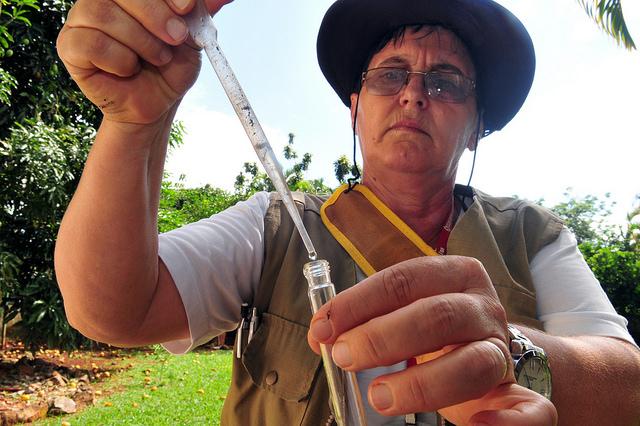US health officials today said explosive Zika spread is unlikely in this country but called for better mosquito-control tools and highlighted early vaccine efforts and research needs to explore the many unanswered questions about the virus and its impact on people.
At a media briefing with US health officials designed to get reporters up to speed with the mosquito-borne virus, Anne Schuchat, MD, the Centers for Disease Control and Prevention's (CDC's) principal deputy director, said, "Zika isn't new, but what we're seeing in the Americas is new."
Though the disease is generally mild when symptoms occur, the situation is unusual, because the biggest issue is possible severe complications in newborns, a concern that has driven CDC travel warnings for pregnant women and its clinical guidance.
She said it's possible and even likely that the continental US will see small clusters of local Zika spread in a few southern states where Aedes aegypti, the main mosquito linked to virus spread, are common. However, the United States isn't likely to see the type of explosive spread occurring in some parts of Central and South America, because the vulnerable areas aren't densely populated and have air conditioning as well as mosquito control programs.
A similar surge in chikungunya infections in the Americas over the past few years only results in a few local infections in the continental United States, and illnesses from the dengue virus—carried by the same mosquito—are also very rare, Schuchat noted.
One problem, though, is that current mosquito methods have some shortcomings, and vector control issues will also be on research agendas, she said.
Research and vaccine prospects
Tony Fauci, MD, director of the National Institutes of Health's (NIH's) National Institute of Allergy and Infectious Diseases (NIAID), told reporters that the NIH is working with research partners on several different Zika virus topics, including natural history of the disease, animal models to look at the impact of the virus on the body, basic research, diagnostics, vaccines, and therapeutics.
Though a vaccine won't be available in the next year or even in the next few years, researchers have a jump on at least two different approaches, he said. One is a DNA-based strategy that showed good results in 2011 in a phase 1 study of a vaccine against West Nile virus, another member of the flavivirus family.
Fauci said a study to explore the possibility of swapping out the West Nile virus gene segment for the Zika virus segment is already under way at the NIAID's Vaccine Research Center, with the hope of making enough vaccine for preclinical and clinical studies to begin.
Another platform possibility is a live attenuated vaccine similar to one designed against dengue, he said, adding that besides vaccines, broad-spectrum antivirals are needed to respond to Zika virus and other threats.
Federal officials have put out a call to the research community, Fauci said. "There are very many important areas of scientific inquiry."
See also:
Jan 28 CDC telebriefing details





















